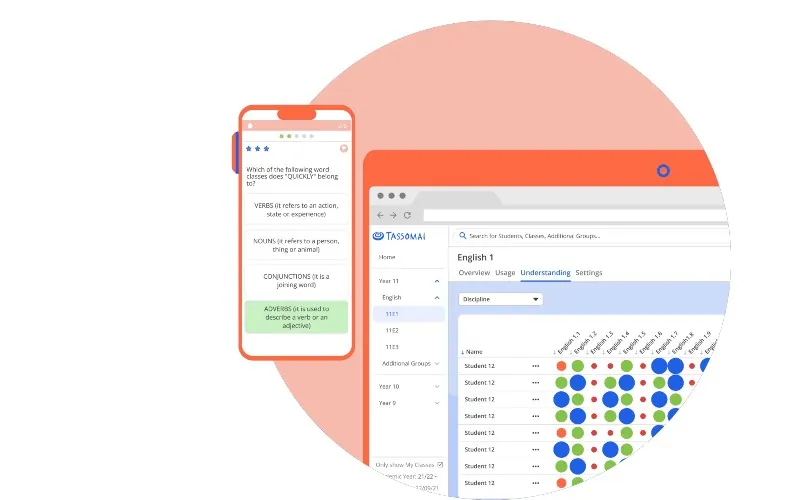There are many synergies between sport and business – and Murray Morrison highlights one as crucial to his entrepreneurial career.
Before starting up his business Tassomai – star of our sister publication BusinessCloud’s EdTech 50 ranking recently – he was a competitive sabre fencer, making it into the UK top 10 rankings and captaining Scotland at the Commonwealth Games in 2010.
After he quit competition, he went on to referee at many fencing World Cups as well as the 2012 Olympic and Paralympic Games. “That was an amazing way to end my sporting career!” he reflects.
Alongside his sporting achievements, he worked as a professional jazz musician, playing saxophone and writing orchestral arrangements. “It was lots of fun – but what’s been great is that, far from being hobbies or mild obsessions, I am convinced that [they led to] the pedagogical ideas that founded the basis of Tassomai,” he explains to TechBlast.
“Tassomai only came about because, through the work I did and people I met along the way, I gained a true insight into what practice is, and how it can lead to elite performance.
“So far from being a distraction or a waste of time, I turned my passions into a software that has helped thousands upon thousands of people with their studies.”
Morrison was teaching science and maths to support his passions when everything “came together”.
“I came to the realisation that what was missing for most young people in education was a system that helped them to practise knowledge in the same way an athlete or musician practises,” he says. “And so Tassomai was born out of an idea to build a really impactful learning and revision method initially for my own students, and later as a software for schools and families.”
No flash in the pan
Founded in 2010, Tassomai began life as a flash-card system before evolving into a spreadsheet then piece of software. “I’d written the first 50,000 questions single-handedly and seen dozens of my own students benefit before I ever turned my thoughts to making it into a commercial business.
“After 2012 I left sport, and turned my full attention to Tassomai. I wanted to see if I could turn this into something bigger that could reach more students. It was slow to start, but after a couple of years we got the attention of some schools and things just took off from there.
“By 2020 we had around 20 staff, 300-odd schools and we were clocking a million questions answered each day.”
A B2C private subscription product was the early focus but the addition of a B2B vertical – working with schools across England and Wales – proved a game-changer, bringing in around 90% of its revenue.

Quizzing
It is now used by more than 5,000 teachers and 150,000 students and their parents each year to boost key curriculum knowledge and understanding in 10 different subjects. When used by schools, Tassomai provides teachers of Key Stage 3 and 4 students with crucial attainment and intervention data: students participate in daily low-stakes quizzes with material that reinforces factual recall and they receive immediate feedback which also goes to teachers and parents.
The program uses continuous rapid assessment to adapt its style of quizzing to suit every student, differentiating for difficulty and varying spacing and interleaving of content to ensure problem areas get the greater attention they need, while stronger or improving areas are continually refreshed.
“What’s interesting to see currently, as we’ve developed some extra products for parents to buy on top of the schools’ provision, is the level of engagement from those parents,” says Morrison. “This additional revenue stream has increased our B2C revenue by some 40% on the previous year, and in turn means we’re more able to provide more to schools, reduce their costs – school funding is a massive problem in education – and reach more students.
“We’re also able to develop these products as free extra provision for families on lower incomes – something that’s vital in the schools system to close the attainment gap.”
Following 40% growth in its B2C business this year, Morrison expects another 30-40% surge in the coming 12 months. On the B2B side, it has grown 20-25% this year.
It is now integrating an AI tutor – ‘Mai’ – into its adaptive retrieval practice platform which it says represents a leap forward in levelling the educational playing field, with the potential to provide personalised AI-powered support to students across the country.
Tips
After an early pre-seed round from an angel investor, Morrison has not raised investment for the business since.
“We often look at the option to raise funds, but honestly we like how we are not following the agenda of a VC breathing down our necks, and we don’t relish the distraction, risk and complexity that fundraising adds,” he says.
“That said, we are looking to grow and maybe there’s a way to accelerate that with the right partners – so I’d never say never.”
Asked for a growth tip for early-stage founders, he replies: “My advice is to live and breathe your product, making evidence and efficacy central to what you do.
“It’s hard to sell something that doesn’t work, and – I imagine – it’s hard to motivate yourself for the grind of building a business if you don’t believe in what you’re doing.”
He adds: “The same goes for the team you build – if you create a company with a strong culture and sense of community, you can achieve tremendous things and enjoy the process.
“If you have negativity in the team it can really hold you back when belief and energy and enthusiasm count for such a big part of making a startup work.”
Building Our Startup: Ian & Lisa McCartney, Plytime Learning


